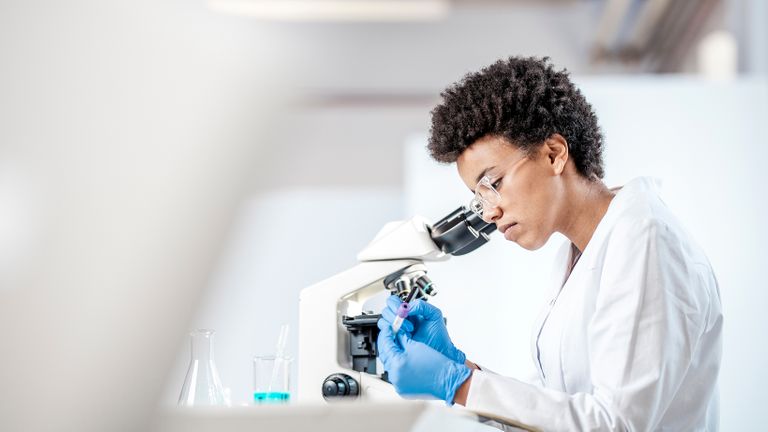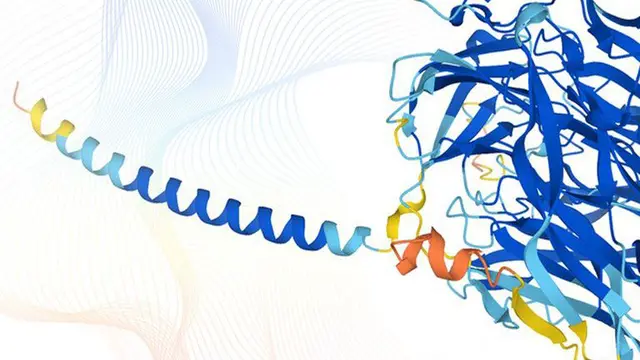A new "game-changer" scientific database could revolutionise the way diseases - including dementia, cancer and
COVID-19
- are treated, scientists have said.
One expert said the new index of protein shapes contains one of the most important datasets since the mapping of the human genome - a 13-year effort that led to the cataloguing of all human beings.
Researchers from Google-owned artificial intelligence (AI) lab DeepMind, and European Bioinformatics Institute (EMBL), have launched the database, which features 20,000 structures for the complete set of proteins expressed in the human body, known as the human proteome.

Image:The database features 20,000 structures for the complete set of proteins expressed in the human body, known as the human proteome
The team used an AI program called AlphaFold to visualise the structure of these "building blocks of life".
EMBL's deputy director general, Ewan Birney said: "Making AlphaFold predictions accessible to the international scientific community opens up so many new research avenues, from neglected diseases to new enzymes for biotechnology and everything in between.
"This is a great new scientific tool, which complements existing technologies, and will allow us to push the boundaries of our understanding of the world."
Ben Perry, discovery open innovation leader at Drugs for Neglected Diseases Initiative (DNDi), one of the research partners using AlphaFold, said it could be a "game changer" for the discovery of new drugs for millions of people around the world.
"By quickly and accurately predicting protein structures, AlphaFold opens new research horizons, improving both the scope and efficiency of R&D (research and development) and facilitating our research in endemic countries," he said.
The launch of the database comes after DeepMind solved one of biology's biggest mysteries, one that stumped researchers for half a century: how proteins fold into unique three-dimensional shapes.
The team again used AlphaFold to predict the biological process, making confident predictions of the structural position of 58% of proteins in the human proteome.
Previously, shapes were determined using "crystallography", which experts said could take months or even years.
Demis Hassabis, founder and chief executive of London-based DeepMind, said: "We used AlphaFold to generate the most complete and accurate picture of the human proteome.
"We believe this represents the most significant contribution AI has made to advancing scientific knowledge to date, and is a great illustration of the sorts of benefits AI can bring to society."
The work is being used to look for new medicines for neglected tropical diseases, such as Chagas disease, a potentially life-threatening illness caused by a parasite.
The AlphaFold predictions are also being used to develop enzymes that can break down plastics.
 简体中文
简体中文

